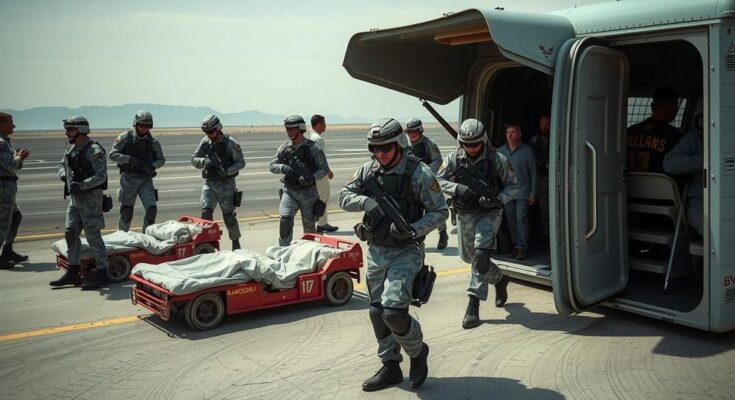The Pentagon repatriated two Malaysian prisoners from Guantánamo Bay after they pleaded guilty to war crimes related to the Bali bombing in 2002. They served time under a plea agreement and provided testimony against Hambali, the suspected mastermind of the attack. Their return under a de-radicalization plan reflects ongoing challenges in managing terrorism-related detainees.
The Pentagon has repatriated two Malaysian nationals, Mohammed Nazir Bin Lep, 47, and Mohammed Farik Bin Amin, 49, after they admitted their involvement in war crimes linked to an Al Qaeda affiliate responsible for the 2002 Bali bombing that resulted in 202 fatalities. The repatriation, which occurred after a secret operation, reduces the detainee population at Guantánamo Bay to 27. Both men, held since 2003, returned to Malaysia under a mutually agreed de-radicalization program. They previously provided sworn testimony concerning Encep Nurjaman, known as Hambali, the alleged mastermind behind the Bali bombing. Their involvement included supporting Hambali in avoiding capture after the bombing, especially while they had training at Al Qaeda camps in Afghanistan in 2000. At a military tribunal, they received sentences of 23 years, but their cooperation enabled an earlier return home. Some victims’ families expressed disappointment regarding the length of the sentences, although they hope their testimonies may assist in convicting Hambali.
The United States has held detainees at Guantánamo Bay as part of its counterterrorism efforts stemming from events such as the September 11 attacks and the subsequent war on terror. Those repatriated often have associations with terrorist organizations, and their return is typically part of negotiations that involve guarantees regarding their future behavior. The military tribunal system in place has been criticized for its handling of detainees, often leading to complex legal and ethical dilemmas surrounding justice and accountability for wartime actions. The dilemma of repatriating individuals who have been involved in acts of terror versus the obligations to victims’ families and national security continues to be debated.
The repatriation of Mohammed Nazir Bin Lep and Mohammed Farik Bin Amin underscores the ongoing complexities of handling former combatants and terrorists. Their cooperation with the Pentagon resulted in an expedited return to Malaysia under a de-radicalization program, which represents a strategic approach to managing former detainees. While some victims’ families express disappointment over the length of sentences, they remain hopeful for justice regarding the identified masterminds of the attacks, indicating the ongoing intricate balance between justice, rehabilitation, and national security.
Original Source: www.nytimes.com




